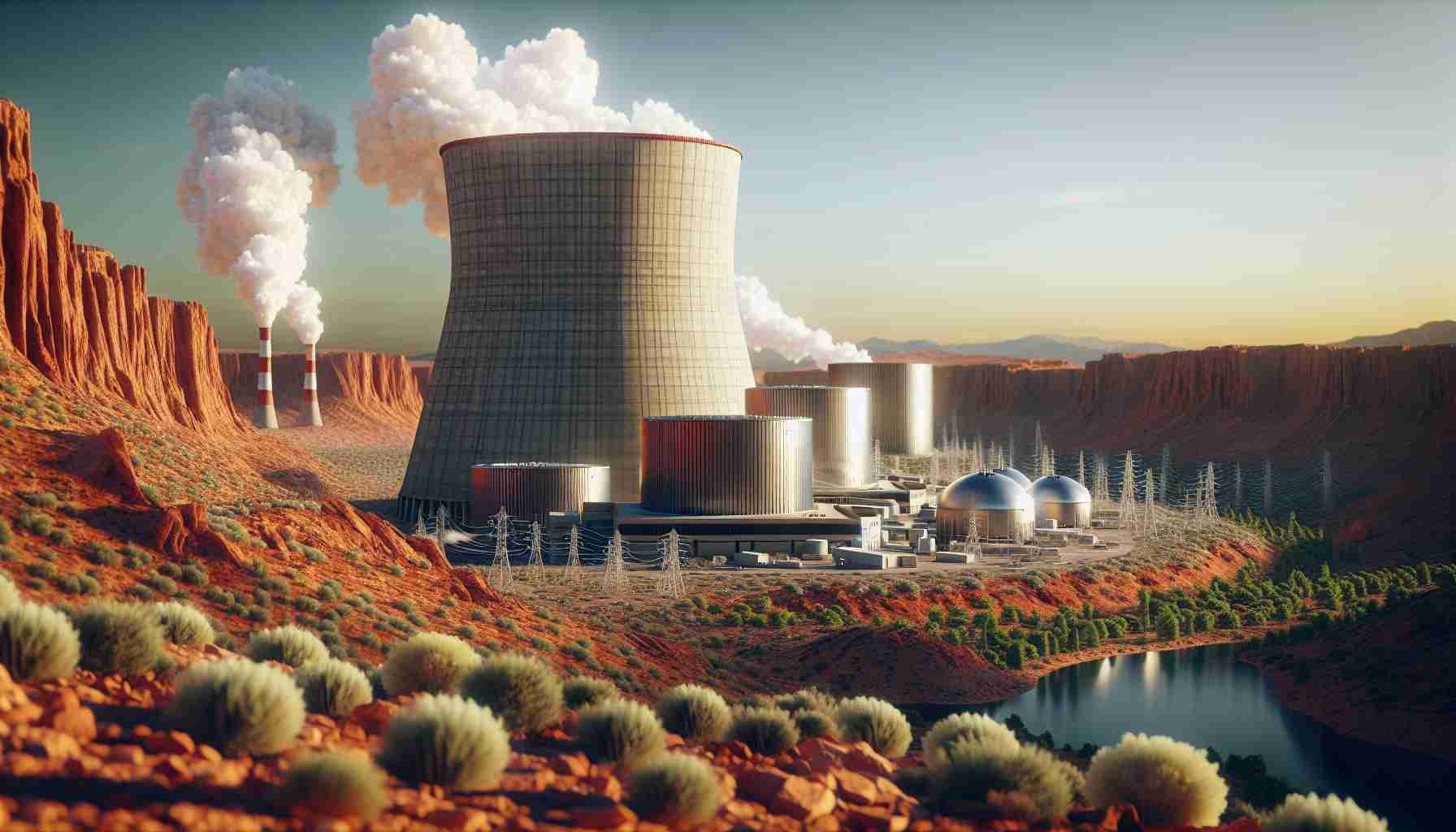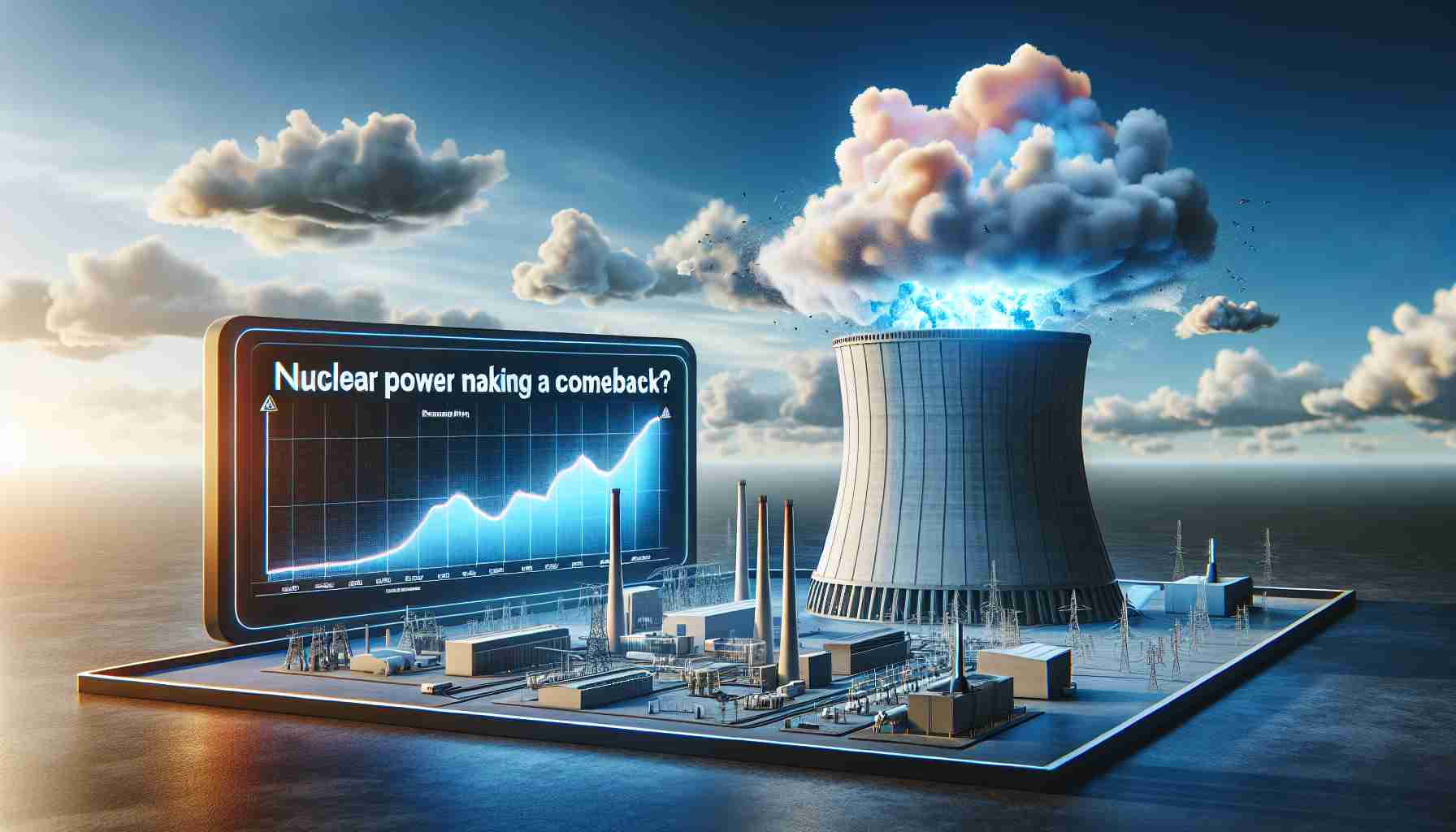Eagle Mountain is on the brink of a significant decision regarding energy. The city council is set to review an ordinance that could pave the way for the introduction of a small modular nuclear reactor in the area. However, not all residents are on board with this idea.
Community members have raised legitimate concerns surrounding the safety and environmental impact of such a facility. Some express worries about how it might affect property values, insurance rates, and the possibility of nuclear accidents. One resident highlighted the vulnerability of the community due to the nearby data centers and military installations, suggesting that adding a nuclear reactor could make Eagle Mountain a target for potential threats.
In response to these concerns, city officials are advocating for a comprehensive energy strategy that considers multiple sources, including natural gas and renewable options. The city’s communication manager noted that while the concept of small modular reactors is attracting attention, it warrants thorough scrutiny. Discussions involving energy experts, skeptics, and community stakeholders have been ongoing.
Despite the uncertainties, city leaders are eager to engage the public in conversations about this emerging technology. The meeting is poised to feature a lively debate as council members contemplate the best path forward for the city’s energy future. Residents hope that any decision made will be well-informed and careful, avoiding hasty choices born from urgency.
The Broader Implications of Nuclear Energy in Local Communities
As the Eagle Mountain city council deliberates the potential introduction of a small modular nuclear reactor, this decision encapsulates much more than local energy needs; it echoes broader societal, cultural, and economic trends. The shift towards nuclear energy could reflect an urgent pivot away from fossil fuels, linking local choices to the global agenda of reducing greenhouse gas emissions.
Impacts on society and culture cannot be understated. Nuclear technology has historically polarized communities, with many viewing it as a symbol of both progress and peril. The unease expressed by Eagle Mountain residents highlights a cultural narrative steeped in historical nuclear incidents, from Chernobyl to Fukushima. As communities grapple with the implications of this technology, open dialogues become imperative. They shape public perceptions that could either support or inhibit the broader acceptance of nuclear energy as part of a sustainable future.
Economically, investing in nuclear energy could catalyze job creation, particularly in skilled labor sectors necessary for construction and operation. However, the cost of potential accidents—or nearby data centers becoming targets—could inflate insurance and property values. The interconnectedness of local economies means that the ramifications of such nuclear endeavors could ripple far beyond Eagle Mountain.
Considering environmental effects, the long-term reliance on small modular reactors promises fewer emissions compared to fossil fuels, but the waste management debate remains unresolved. As global attention shifts towards sustainable solutions, communities like Eagle Mountain stand at a crossroads, where their decisions may shape the future of regional energy policies.
In short, the fate of Eagle Mountain’s energy strategy encapsulates a larger dialogue on energy security, environmental health, and community safety—one that resonates far beyond its immediate borders.
Will Eagle Mountain Embrace Nuclear Power? Understanding the Potential Impact of Small Modular Reactors
Introduction
Eagle Mountain is at a pivotal crossroads as its city council prepares to consider an ordinance that could allow the deployment of small modular nuclear reactors (SMRs) in the area. This emerging technology promises a cleaner energy alternative, but it has sparked a heated debate among residents, raising questions about safety, environmental impacts, and economic consequences.
Features and Innovations of Small Modular Reactors
Small modular reactors are a new generation of nuclear technology designed to be built in factories and shipped to sites for installation. The key features of SMRs include:
– Reduced Size and Modular Design: As their name suggests, SMRs are smaller than traditional reactors, which allows for flexibility in scaling up energy production as demand grows.
– Enhanced Safety Features: Many SMRs are designed with advanced safety systems that minimize the risk of accidents, using passive safety features that operate without external power.
– Lower Initial Costs: The modular nature of SMRs potentially reduces construction costs and allows for incremental investments in nuclear energy.
– Reduced Environmental Footprint: Utilizing nuclear energy can lead to a significant decrease in greenhouse gas emissions compared to fossil fuels.
Pros and Cons of Introducing SMRs in Eagle Mountain
Pros:
– Energy Independence: SMRs could help diversify the city’s energy portfolio and reduce dependency on fossil fuels.
– Job Creation: The construction and operation of a nuclear facility could create jobs and boost the local economy.
– Sustainable Energy: Nuclear energy provides a stable and continuous power supply, crucial for meeting energy demands.
Cons:
– Safety Concerns: Residents worry about the potential for nuclear accidents and the management of nuclear waste.
– Property Value Impacts: Concerns related to property values and insurance premiums have surfaced among local homeowners.
– Geopolitical Risks: Proximity to military installations heightens fears that a nuclear reactor could attract undesirable attention.
Community Engagement and Decision-Making Process
City officials emphasize the importance of community involvement in the decision-making process. They plan to host discussions involving energy experts, local stakeholders, and residents to ensure diverse perspectives are considered. This engagement aims to foster a well-informed decision that reflects the community’s values and concerns.
Sustainability and Market Trends
As trends shift towards sustainable energy solutions, the integration of SMRs might represent a significant step towards reducing Eagle Mountain’s carbon footprint. The global nuclear energy market is witnessing a resurgence, with countries exploring advanced nuclear technologies to meet climate targets. This trend positions Eagle Mountain as a potential leader in innovative energy solutions if it chooses to embrace this technology.
Conclusion
The Eagle Mountain city council’s upcoming decision regarding small modular reactors is consequential. While the potential benefits of introducing SMRs are notable, addressing community apprehensions and ensuring a transparent decision-making process will be critical. As residents prepare for this important meeting, the future of the city’s energy strategy hangs in the balance.
For more insights on energy solutions and sustainable practices, visit Energy.gov.
The source of the article is from the blog zaman.co.at



